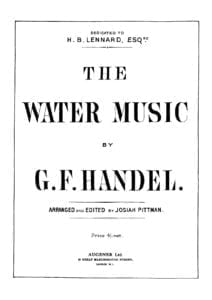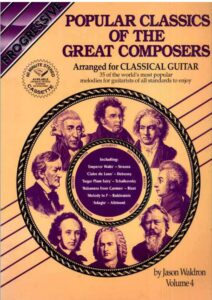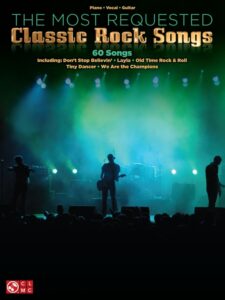Come join us now, and enjoy playing your beloved music and browse through great scores of every level and styles!
Can’t find the songbook you’re looking for? Please, email us at: sheetmusiclibrarypdf@gmail.com We’d like to help you!
Table of Contents
Georg Friedrich Händel (sheet music in the #smlpdf)

Handel – Complete Harpsichord Works With Index (Breitkopf & Haertel 1859)
Handel – Halvorsen – Passacaglia
Handel – Joy To The World Piano Solo arr.
HANDEL – Prelude from Suite 14 G major
Handel – Sarabanda e variazioni
Handel – Suite No 5 in E
Handel air-with-variations-630
Handel Halvorsen Passacaglia Piano Solo arr. (Suite No. 7, g minor, HWV 432)
Handel HWV478
Handel Menuet G minor 434 arr. W. Kempff
Handel Menut G minor 434
HANDEL Piano works II
Handel Suite5 Harmonious Blacksmith
HANDEL Watermusic-Handel-Pittman
Handel,_Georg_Friedrich-HHA_Serie_IV_Band_5_01_HWV_434
Handel-Harmonious Blacksmith HWV430-Maylath
Best Sheet Music download from our Library.
Please, subscribe to our Library.
If you are already a subscriber, please, check our NEW SCORES’ page every month for new sheet music. THANK YOU!

The Best of Händel
Track Listing:
THE BEST OF HANDEL
Concerto Grosso Op. 6
No. 1, in G Major II. Allegro
No. 1, in G Major III. Adagio
No. 1, in G Major IV. Allegro
No. 1, in G Major V. Allegro
No. 2, in F Major I. Andante Larghetto
No. 2, in F Major II. Allegro
No. 2, in F Major III. Largo
No. 2, in F Major IV. Allegro ma non troppo
No. 3, in E Major I. Larghetto
No. 3, in E Major II. Andante
No. 3, in E Major III. Allegro
No. 3, in E Major IV. Polonaise, Andante
No. 3, in E Major V. Allegro ma non troppo
No. 4, in A Minor I. Laghetto affettuoso
No. 4, in A Minor II. Allegro
No. 4, in A Minor III. Largo e piano
No. 4, in A Minor IV. Allegro
Water Music
Suite No. 1, in F Major I. Overture
Suite No. 1, in F Major II. Adagio e Staccato
Suite No. 1, in F Major III. Minuet
Suite No. 1, in F Major IV. Aria
Suite No. 1, in F Major V. Minuet
Suite No. 1, in F Major VI. Bouree
Suite No. 1, in F Major VII. Hornipipe
Suite No. 1, in F Major VIII. Allegro
Suite No. 2, in D Major I. Allegro
Suite No. 2, in D Major II. Alla Hornpipe
Suite No. 2, in D Major III. Minuet
Suite No. 2, in D Major IV. Lento
Suite No. 2, in D Major V. Bouree
Suite No. 3, in G Major I. Allegro
Suite No. 3, in G Major II. Rigaudon 1:Corona
Suite No. 3, in G Major III. Minuet
Suite No. 3, in G Major IV. Minuet
Suite No. 3, in G Majo V. Allegro
Suite No. 3, in G Major VI. Allegro
Rinaldo, HWV 7: Act II “Lascia Ch’io Pianga”
Serse, HWV 40: Act I “Ombra Mai Fu”
Messiah, HWV 56: Chorus “For unto us a Child is Born”
Zadok the Priest, HWV 258 ( Coronation anthem )
Suite in D Minor, HWV 437: IV. Sarabande
Samson, HWV 57: Act III “Let their celestial concerts”

Please, subscribe to our Library.
If you are already a subscriber, please, check our NEW SCORES’ page every month for new sheet music. THANK YOU!

Best Sheet Music download from our Library.
Georg Friedrich Händel (short bio)
George Friedrich Handel (Georg Friedrich Händel in German) (February 23, 1685 – April 14, 1759) was a German-born English composer of learned baroque music. Most of his life he lived in Great Britain.
He was born in the city of Halle, located in the central east of present-day Germany. His father was a barber and surgeon and had decided that his son would be a lawyer, but when he observed Händel’s interest in music, which he studied and practiced in secret, he changed his mind and was willing to pay for his music studies. In this way, Händel became a student of Halle’s leading organist, Friedrich Wilhelm Zachau. At the age of 17 he was appointed organist of the Calvinist cathedral of Halle.
After a year, Händel traveled to Hamburg, where he was admitted as a violin and harpsichord player in the opera orchestra. Shortly thereafter, in 1705, his work Almira was premiered in that same place, and shortly after Nero. The following year, he accepted an invitation to travel to Italy, where he spent more than three years. In Italy, his works were performed in Florence, Rome, Naples and Venice, and at the same time Handel wrote new music, inspired by the music of that country. Above all, he studied and perfected the way of combining his music with Italian texts. Thanks to the high quality of his performances, he met important Italian musicians and composers of the time, such as Scarlatti, Corelli and Marcello.
In 1710, Handel returned from Italy and became the conductor of the Hanover court. A year later his work Rinaldo premiered in London with considerable success. In view of this, in 1712 Händel decided to settle in England. There he was commissioned to create a royal opera house, which would also be known as the Royal Academy of Music. Handel wrote 14 operas for that institution between 1720 and 1728, which made him famous throughout Europe.
In 1727, Handel became a British citizen, changing the way he spelled his name to “George Frideric Handel.”
Starting in 1740, Händel dedicated himself to composing oratorios, including The Messiah, which in the 19th century would become the choral work par excellence. In 1751, Handel lost his sight while composing the oratorio Jefta. He died in London aged 74.
Handel composed 32 oratorios, 40 operas, numerous music pieces for masses, 110 cantatas, 20 concertos, 39 sonatas, fugues and suites, and other orchestral works.
